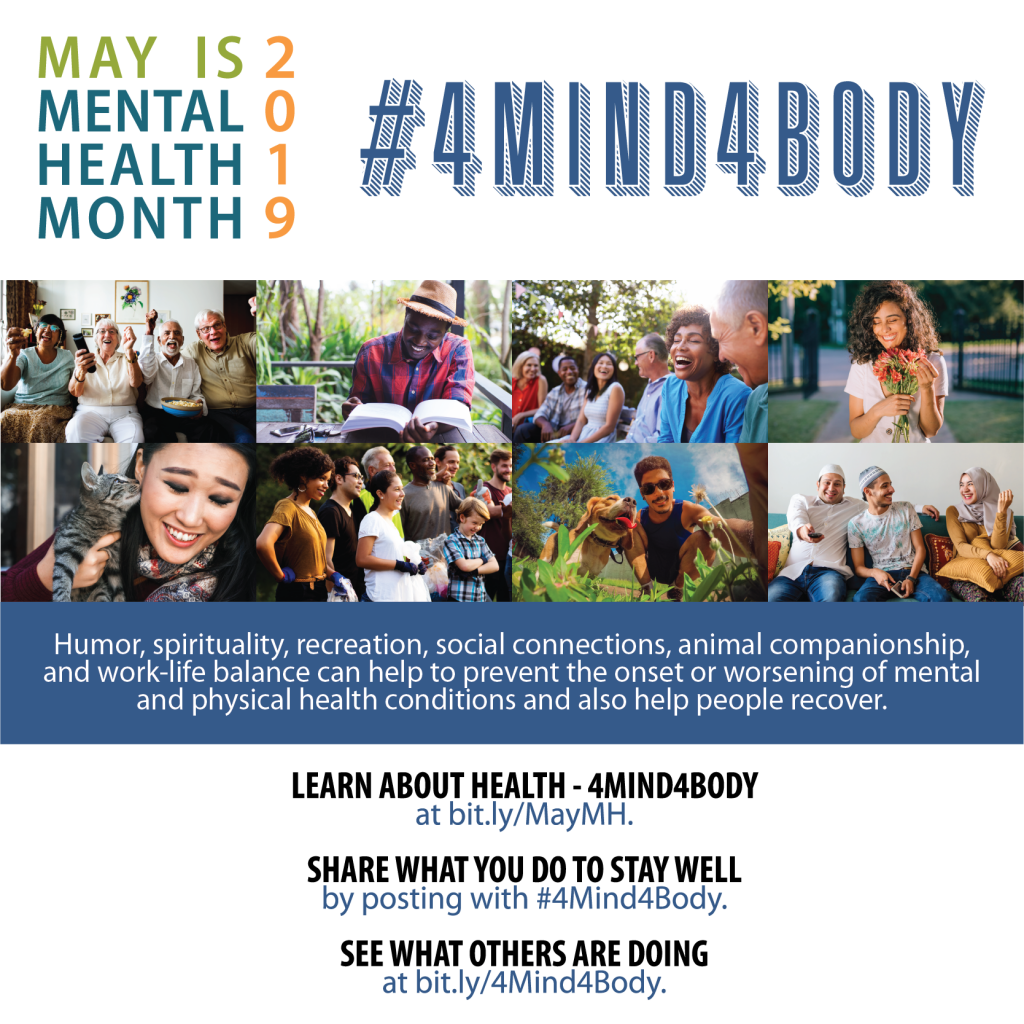Everyday we routinely take care of our physical health – we brush our teeth, we eat, we drink water, we exercise, we sleep, etc. Meditation is a routine we can have to take care of our mental health. Meditation improves your sleep, lowers your blood pressure, improves focus, reduces brain chatter, and reduces your stress. In fact, setting aside a little time each day to get to know your mind is a great step to a healthier and happier life. Just as you take care of your physical health everyday, with meditation, you are taking care of your mental health!
Mindfulness meditation is simple but can be challenging. In mindfulness meditation we pay attention to the breath as it goes in and out, and notice when the mind wanders from this task. When the mind wanders, return to the breath. By doing this, we build the muscles of attention and mindfulness.
When we pay attention to our breath, we are learning how to return to, and remain in, the present moment—to anchor ourselves in the here and now on purpose, without judgement.
Meditation is simpler (and harder) than most people think. Read these steps, make sure you’re somewhere where you can relax into this process, set a timer, and give it a shot:
1) Take a seat
Find a place to sit that feels calm and quiet to you.
2) Set a time limit
If you’re just beginning, start by meditating for five minutes. Apps like Insight Timer or Calm have timers you can set and also include guided meditations.
3) Sit or kneel comfortably
You may sit in a chair with your feet on the floor, or if you prefer, sit on the floor sitting cross-legged, or you can kneel—all are fine. Just make sure you are in a stable position that will allow you to stay in it for a while.
4) Feel your breath
Breathe in and bring your attention to your breathing. You may do this with your eyes closed or with a soft gaze. Follow the sensation of the breath. Don’t make any effort to change it, just observe the rising and falling sensation that it creates in the body.
5) Notice when your mind has wandered
Inevitably, your attention will leave the breath and wander to other places. When you notice that your mind has wandered—in a few seconds, a minute, five minutes—simply return your attention to the breath.
6) Have compassion for your wandering mind
Don’t judge yourself or obsess over the content of the thoughts you find yourself lost in. Let your thoughts float like clouds in the sky. Just come back to the breath.
7) Close with kindness
When you’re ready, gently lift your gaze (if your eyes are closed, open them). Take a moment and notice any sounds in the environment. Notice how your body feels right now. Notice your thoughts and emotions.
That’s it! That’s the practice. You focus your attention, your mind wanders, you bring it back, and you try to do it as kindly as possible (as many times as you need to). Start by meditating daily for 5 minutes, gradually increasing to 20 minutes over the course of 4-6 weeks.



 Are you feeling stressed or overwhelmed? Try mindfulness! Research has shown that Mindfulness is effective for stress reduction, anxiety, depression, and even insomnia. Jon Kabat Zinn defines mindfulness as
Are you feeling stressed or overwhelmed? Try mindfulness! Research has shown that Mindfulness is effective for stress reduction, anxiety, depression, and even insomnia. Jon Kabat Zinn defines mindfulness as